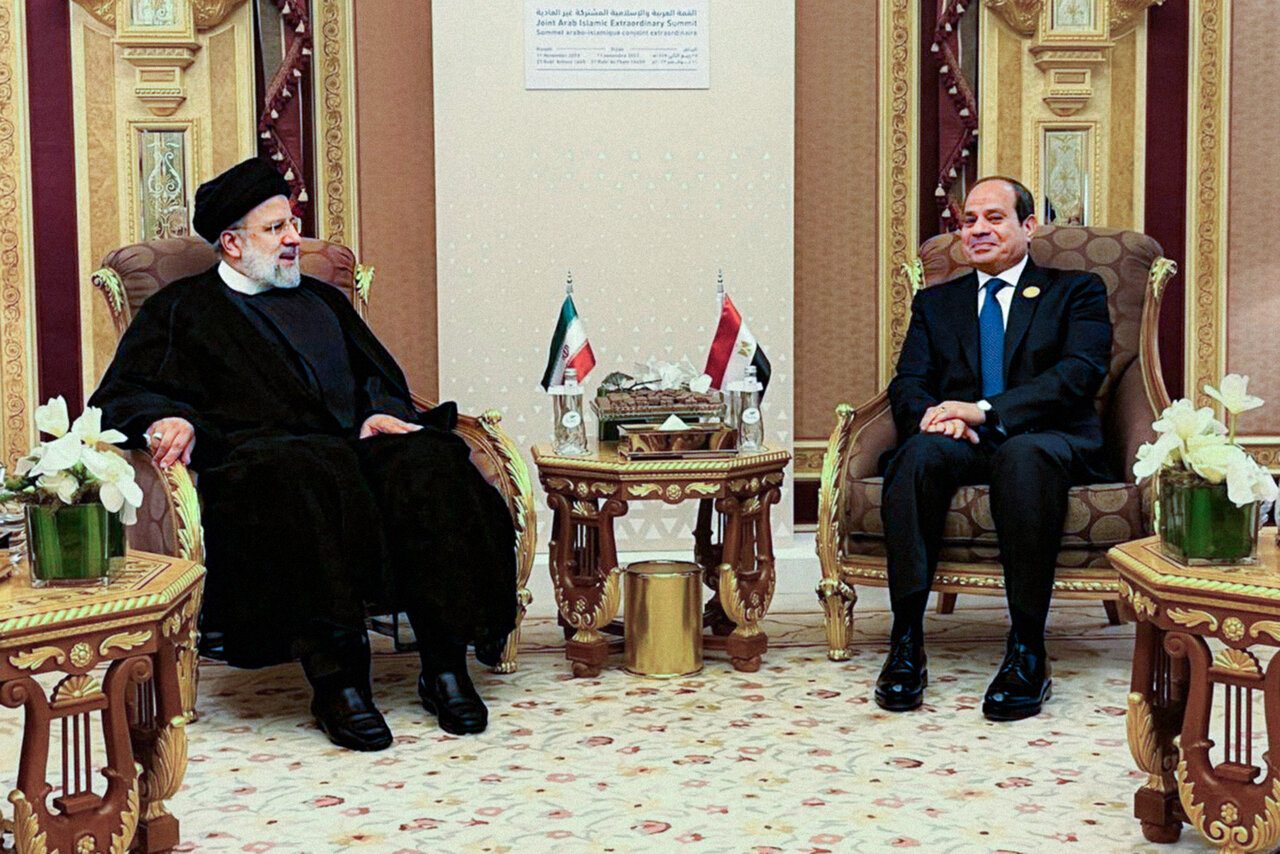Afterthoughts: Riyadh Summit highlighted Iran’s return

TERHAN – The main focus of the extraordinary Arab-Islamic summit in Riyadh was obviously the plight of the Palestinians. But it also included important diplomatic moments for Iran.
Although the public mood in Iran’s diplomatic apparatus was gloomy over the Israeli atrocities in the Gaza Strip, Iran’s diplomatic achievements were remarkable, with the Iranian President meeting Arab leaders for the first time in years.
President Raisi arrived in Saudi Arabia on Saturday for the Arab-Islamic summit on Gaza amid a brutal Israeli campaign against the civilians in the Palestinian enclave.
To begin with, President Raisi’s trip to Saudi Arabia was a breakthrough in itself. Iran and Saudi Arabia have long been locked in rivalries and disputes over a range of issues, which ultimately led to the breakdown of their diplomatic relations in 2016. The two regional heavyweights remained without any diplomatic relations for almost seven years. Despite countless mediation efforts by regional countries such as Iraq and Pakistan, Riyadh and Tehran failed to patch up their relations until last March when a Chinese-brokered deal broke the ice and heralded a new era in Iranian-Saudi relations. Since then, the officials of the two countries have been busy scheduling mutual trips. The first step was to exchange visits at the level of foreign ministers. Despite some red herrings, the foreign ministers of Iran and Saudi Arabia exchanged visits to Tehran and Riyadh. Other ministers followed suit but higher-level visits remained off-limits.
The Israeli aggression against the Gaza Strip offered a chance. Iran and Saudi Arabia both took the lead in calling for the Arab-Islamic summit, which came a at time when all Muslim countries needed a unified stance not just on Israel but also on its Western allies.
In Riyadh, President Raisi met with Saudi Crown Prince Mohammad bin Salman, whose country played host to the summit. The meeting was the first between President Raisi and Prince Mohammad bin Salman. Raisi’s visit to Saudi Arabia was also the first for an Iranian president to the Arab country in 11 years.
In this meeting, the development of bilateral relations and regional cooperation was discussed and emphasized, and the parties agreed to discuss bilateral and regional issues in detail in the future, according to a statement by the Iranian presidency.
Iranian Ambassador to Saudi Arabia Alireza Enayati said the Iranian president invited the Saudi crown prince to pay a visit to Iran.
This meeting was not the only important one held on the sidelines of the summit of the Organization of Islamic Cooperation (OIC). President Raisi also met with Egyptian President Abdel Fattah El-Sisi, who has been at the center of diplomatic efforts aimed at de-escalating the Israel-Gaza war since the beginning of the war in early October.
Egypt and Iran do not have diplomatic relations at the level of ambassadors. They have diplomatic interest sections in each other’s capitals, way lower than full diplomatic relations. Several rounds of diplomatic talks and mediations between Tehran and Cairo have not yielded concrete results in terms of exchanging embassies.
In his meeting with President Sisi, President Raisi voiced readiness to upgrade relations with the most populous Arab country.
“The Islamic Republic of Iran sees no obstacle to the development of relations with the friendly country of Egypt,” Raisi told his Egyptian counterpart.
President Raisi described the holding of the peace meeting in Cairo as a positive initiative that the Western countries prevented from reaching its conclusion. “The Cairo peace meeting could have been a turning point in ending the Zionist crimes in the massacre of defenseless and innocent women and children in Gaza, but the Western countries supporting the Zionist regime did not allow the Security Council and other international organizations to take effective action to stop these crimes and also prevented the meeting from being fruitful,” he added.
President Sisi, for his part, reiterated Egypt’s will to boost relations with Iran. “Our definite political will is to establish real relations with Iran,” he said.
He added, “We have assigned the related ministers to pursue deep relations between the two countries.”
In addition to Saudi Arabia and Egypt, the Iranian president met with other Muslim and Arab leaders, which further highlighted the proactivity of Iranian diplomacy.
